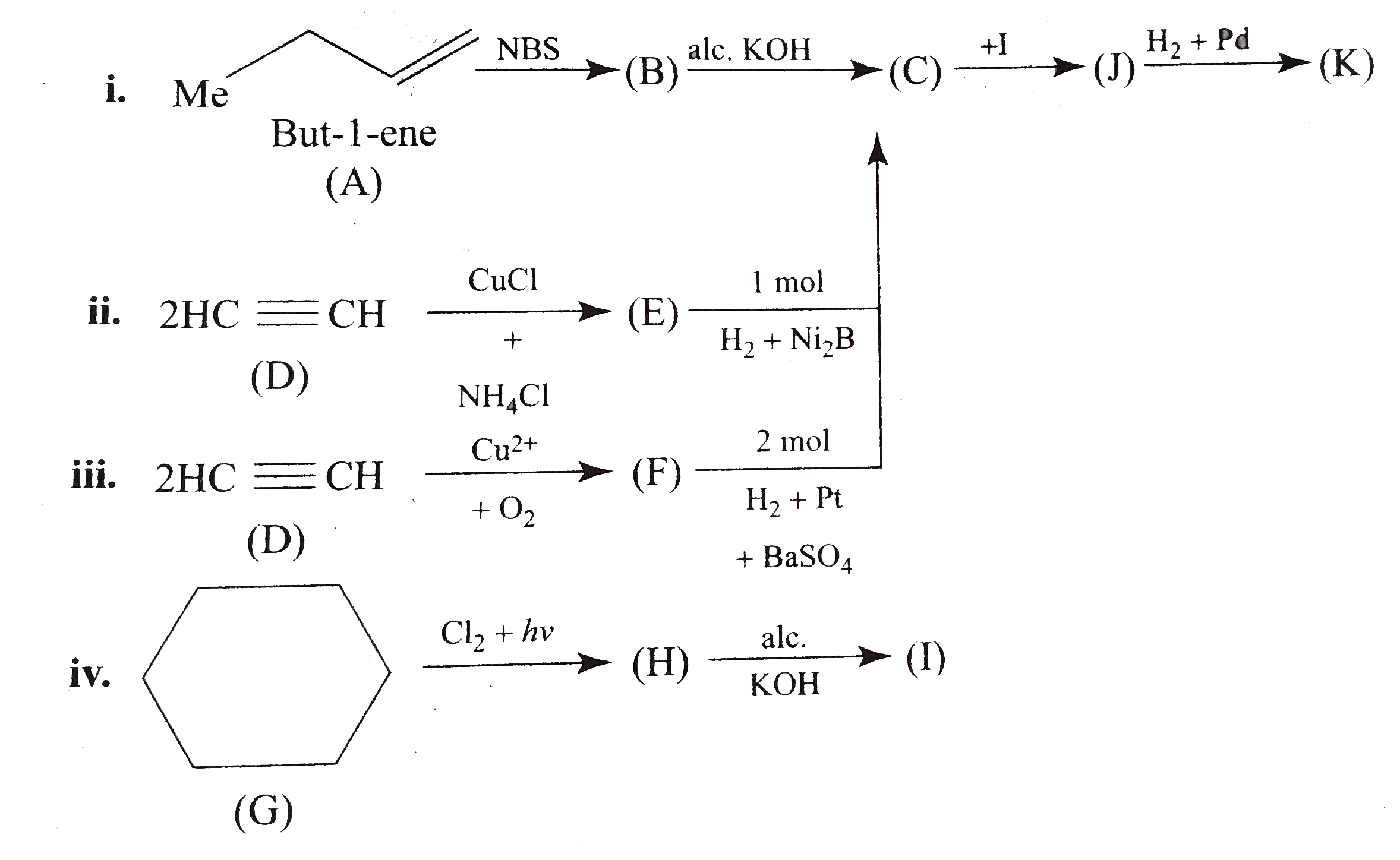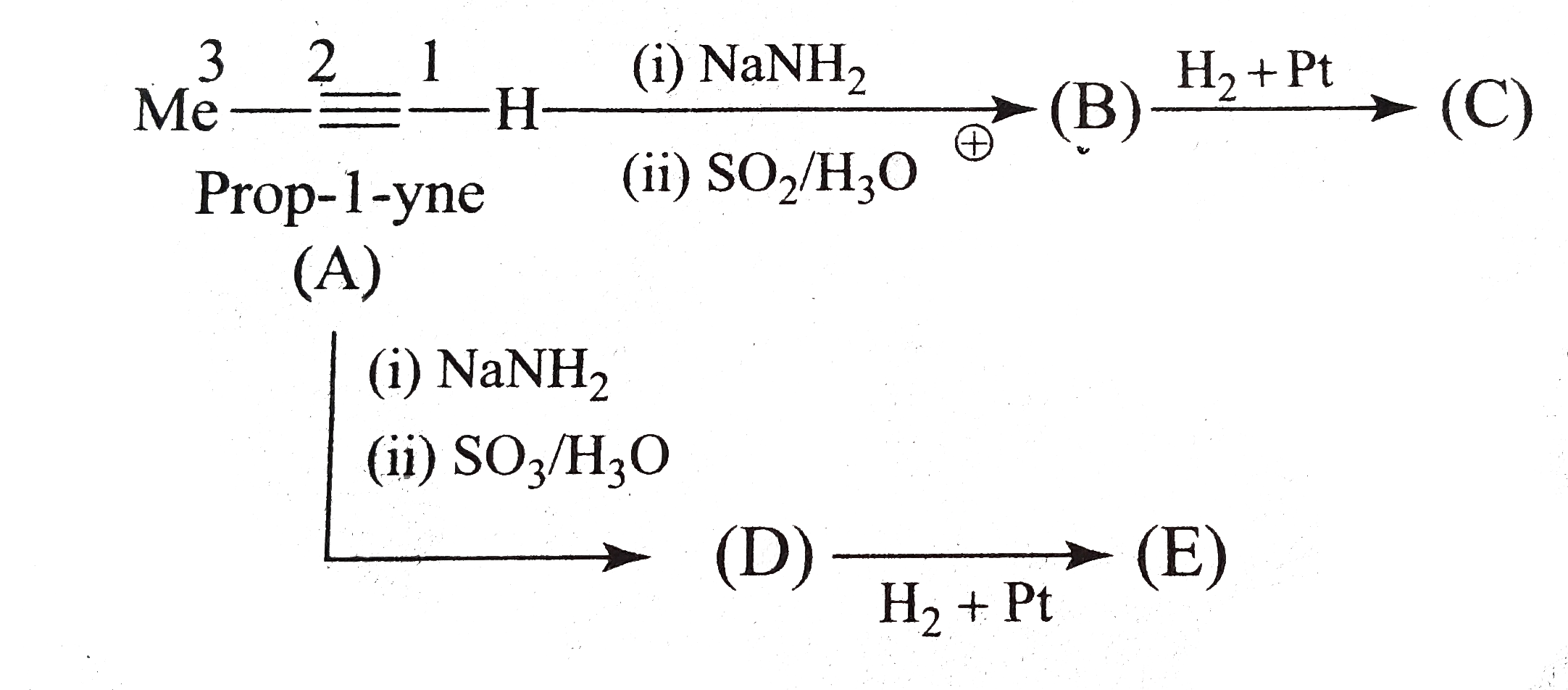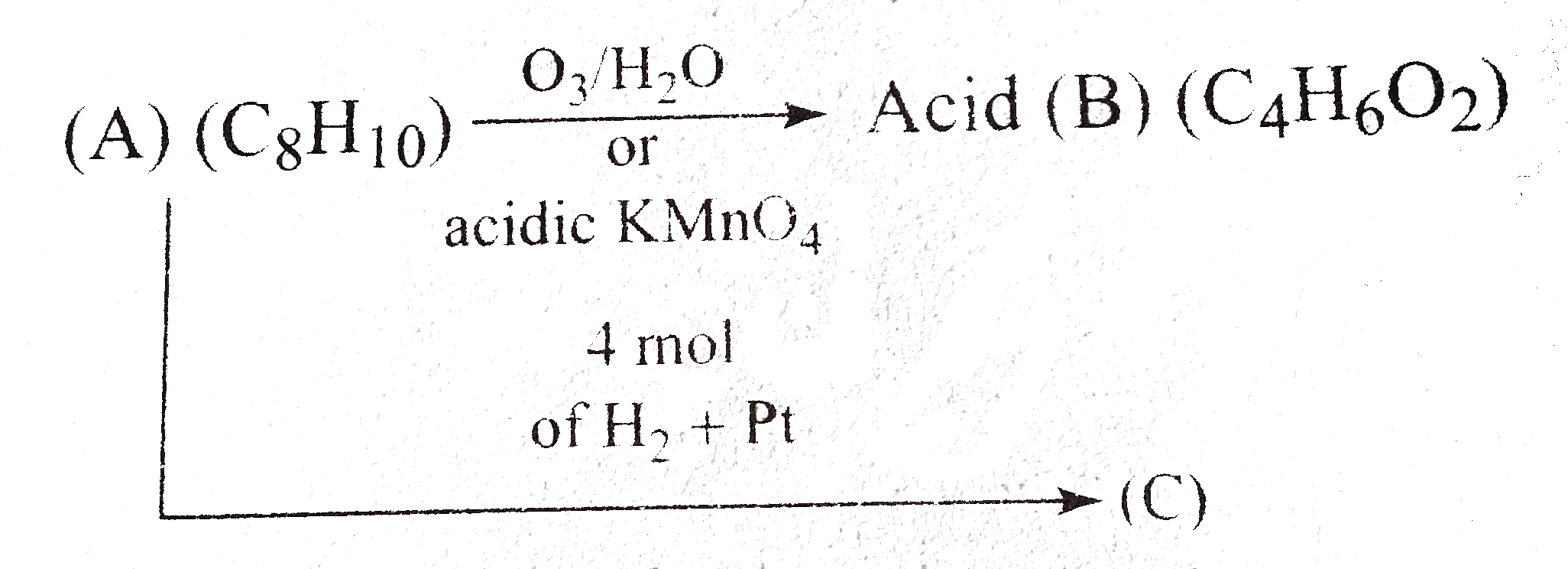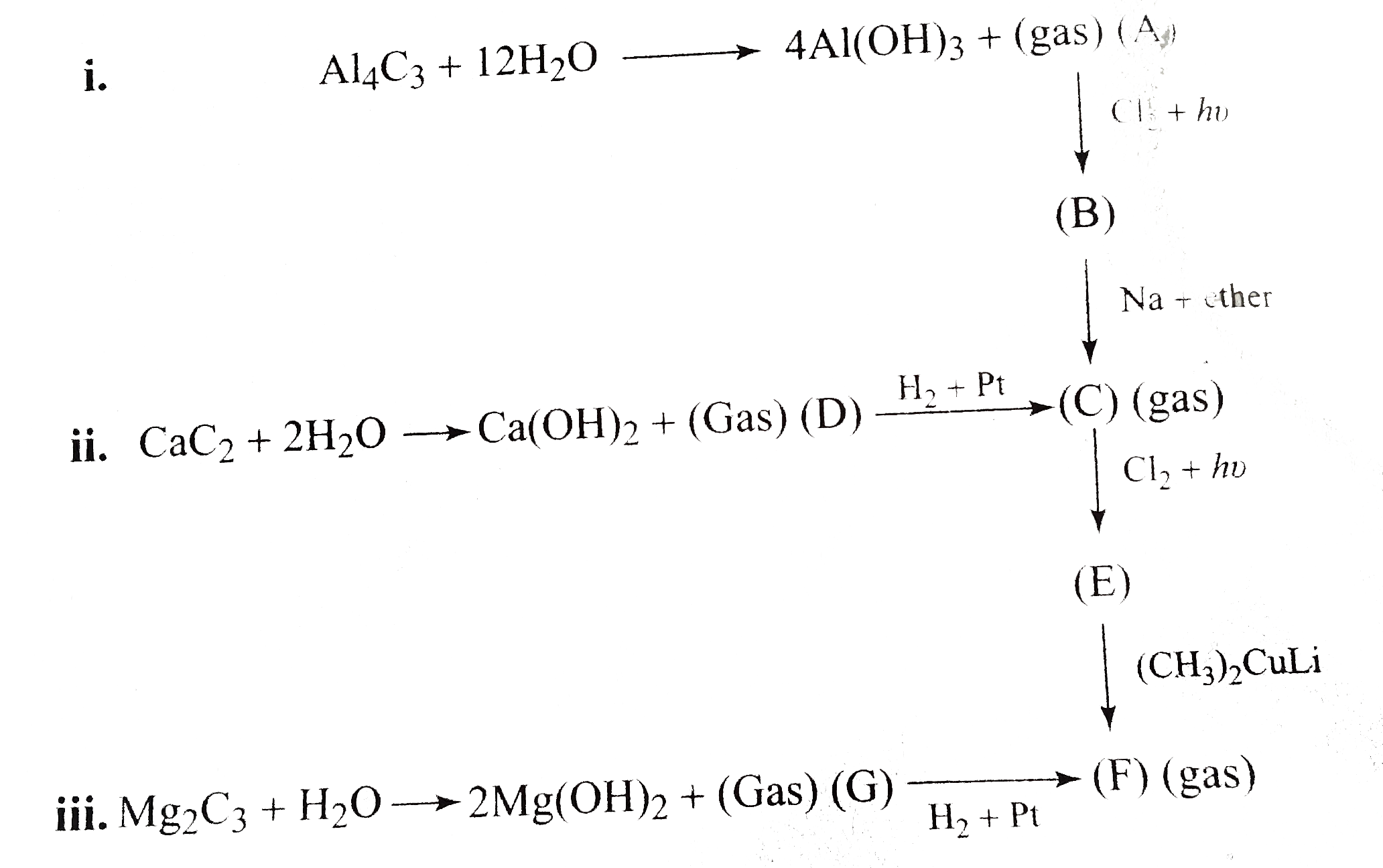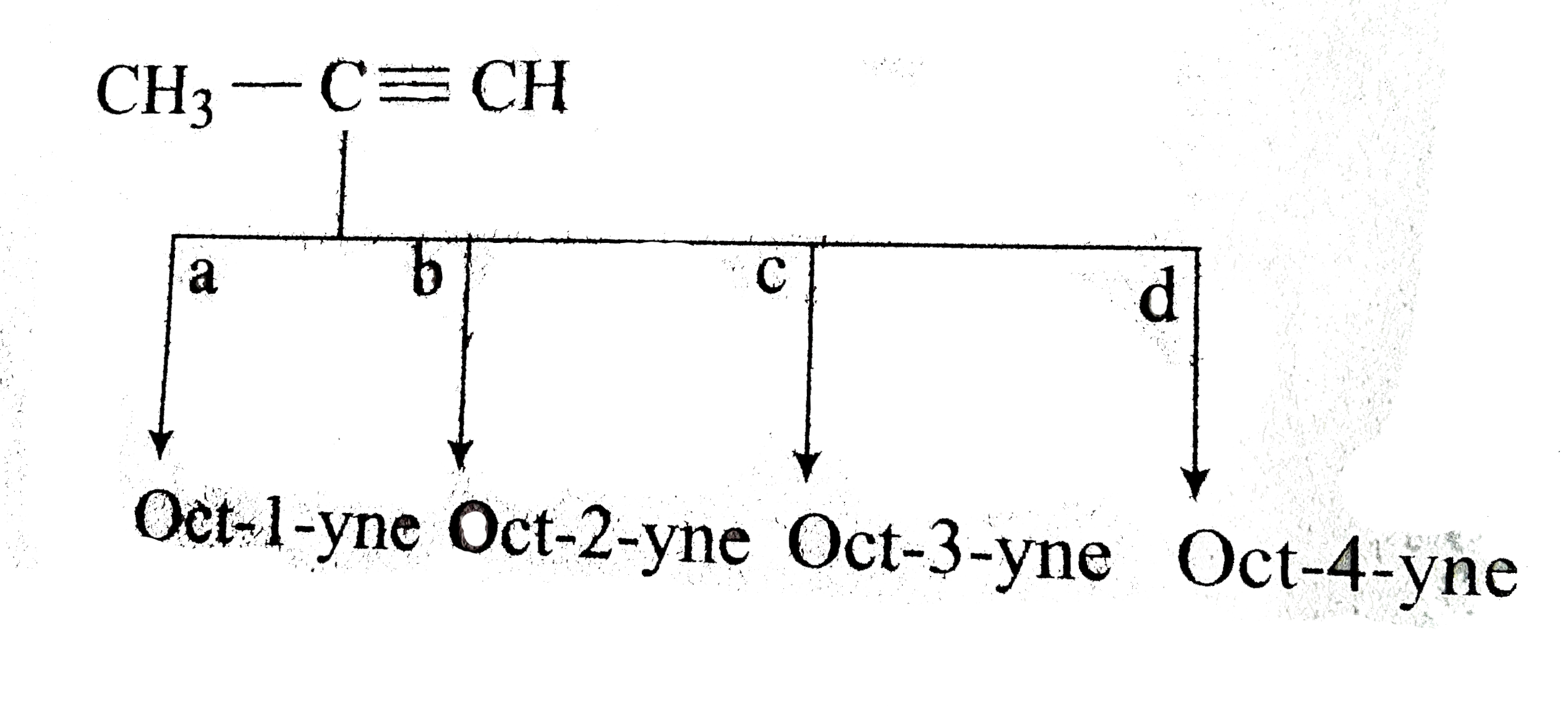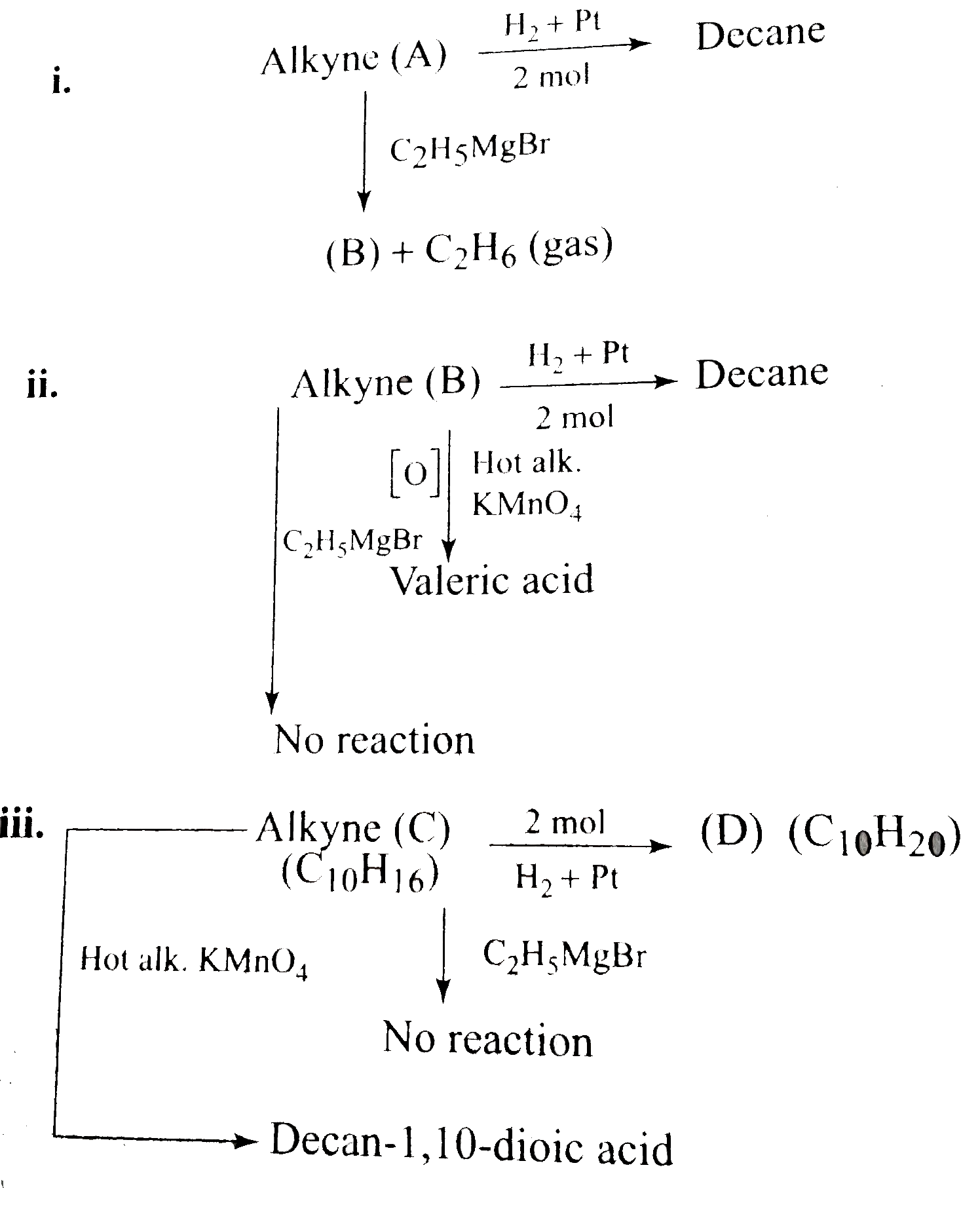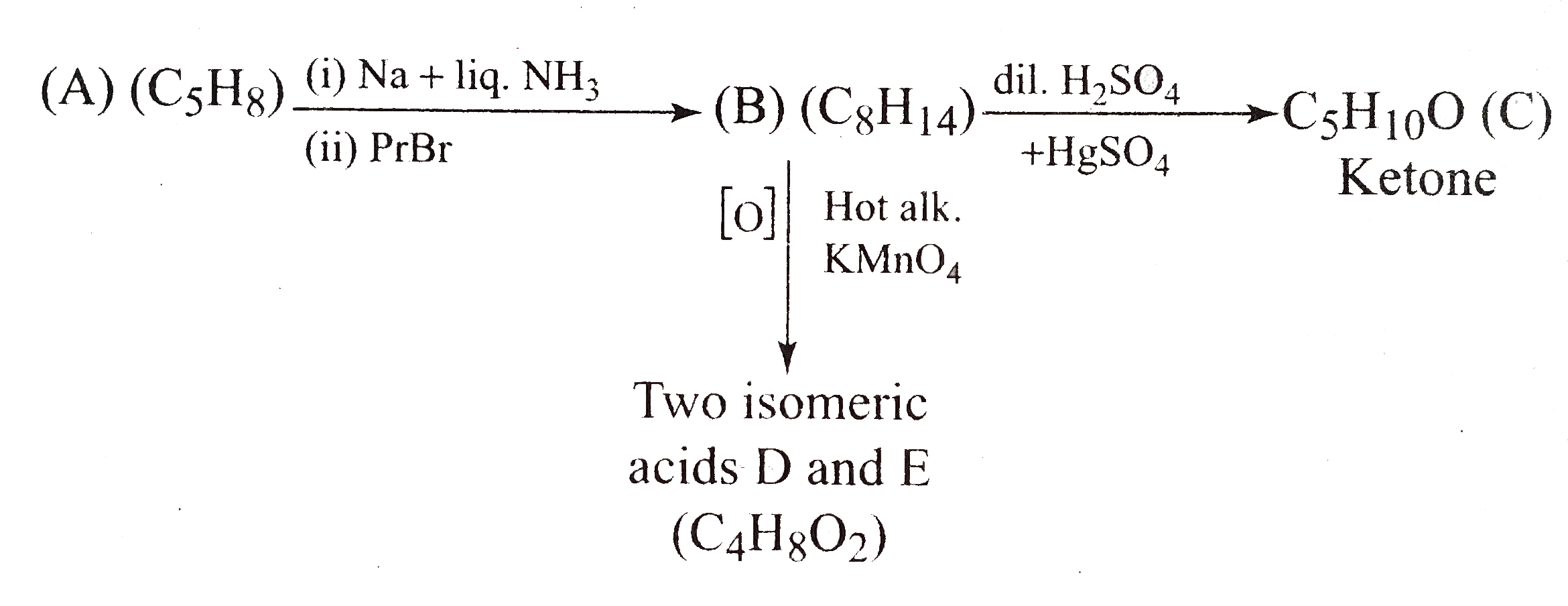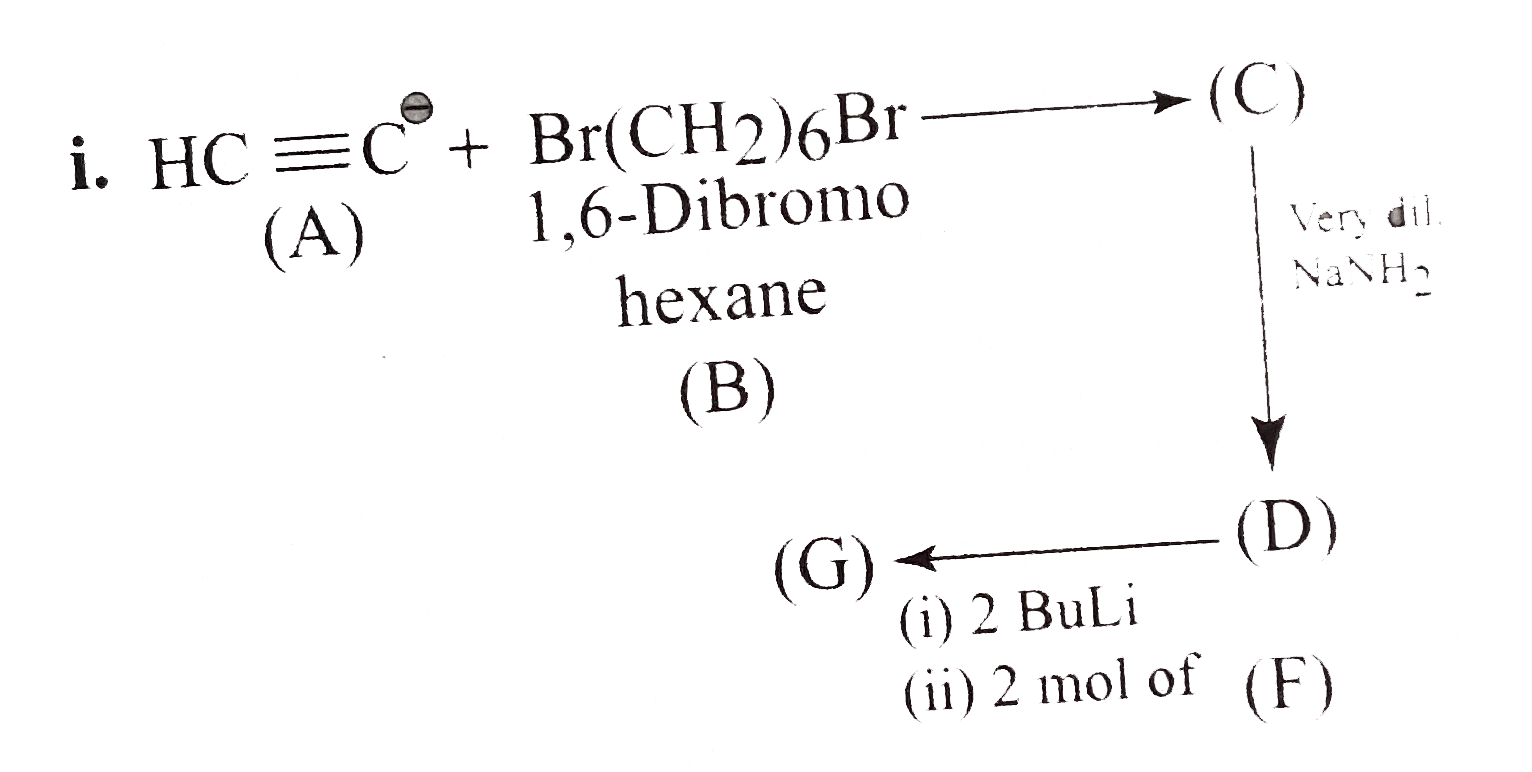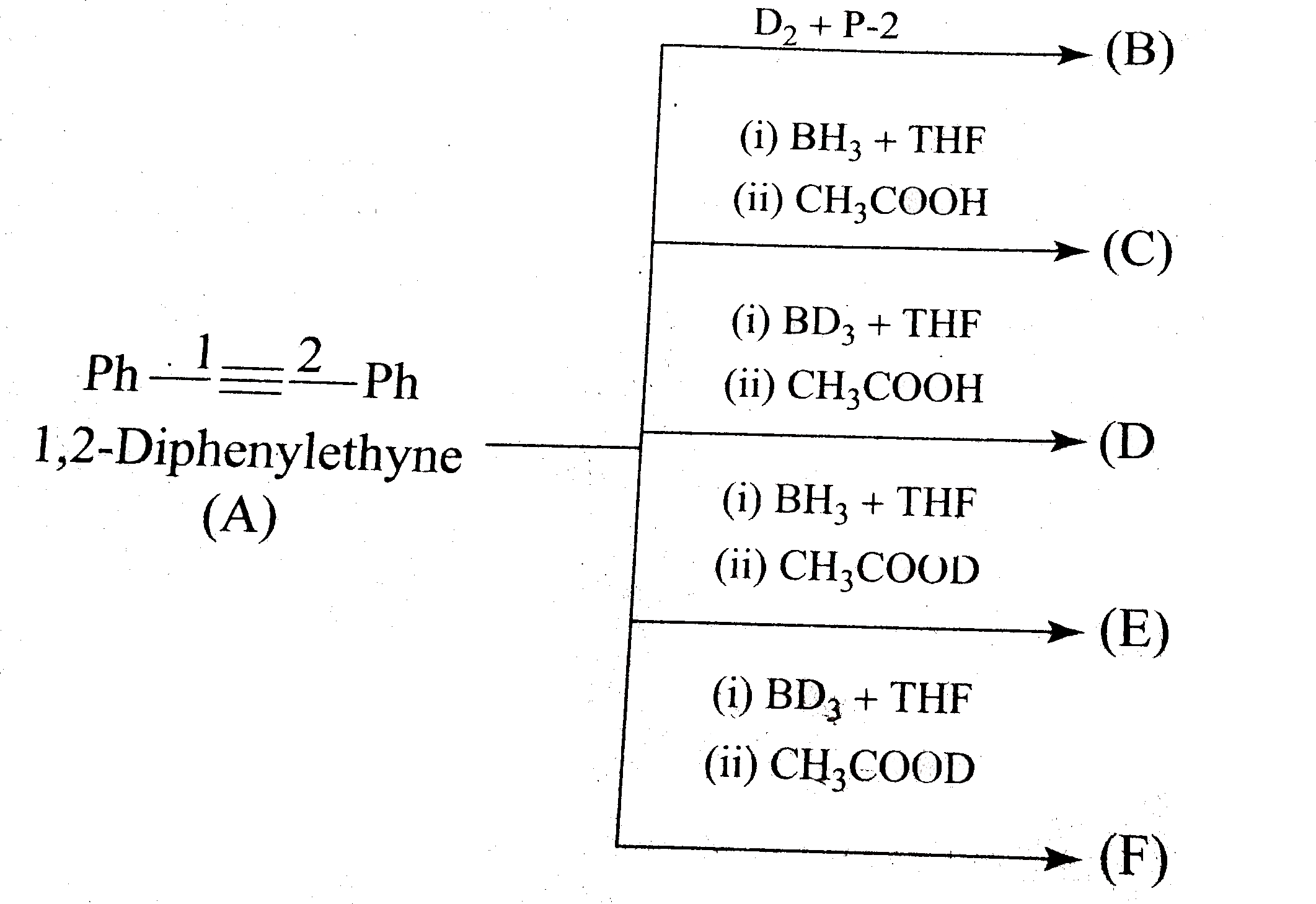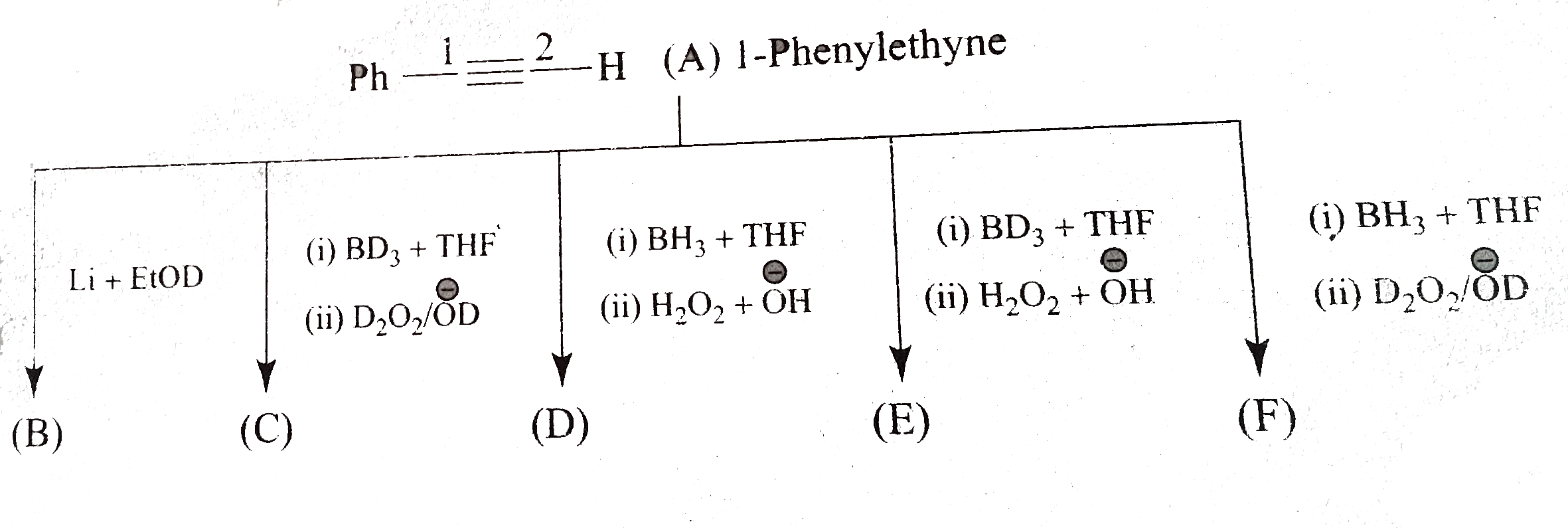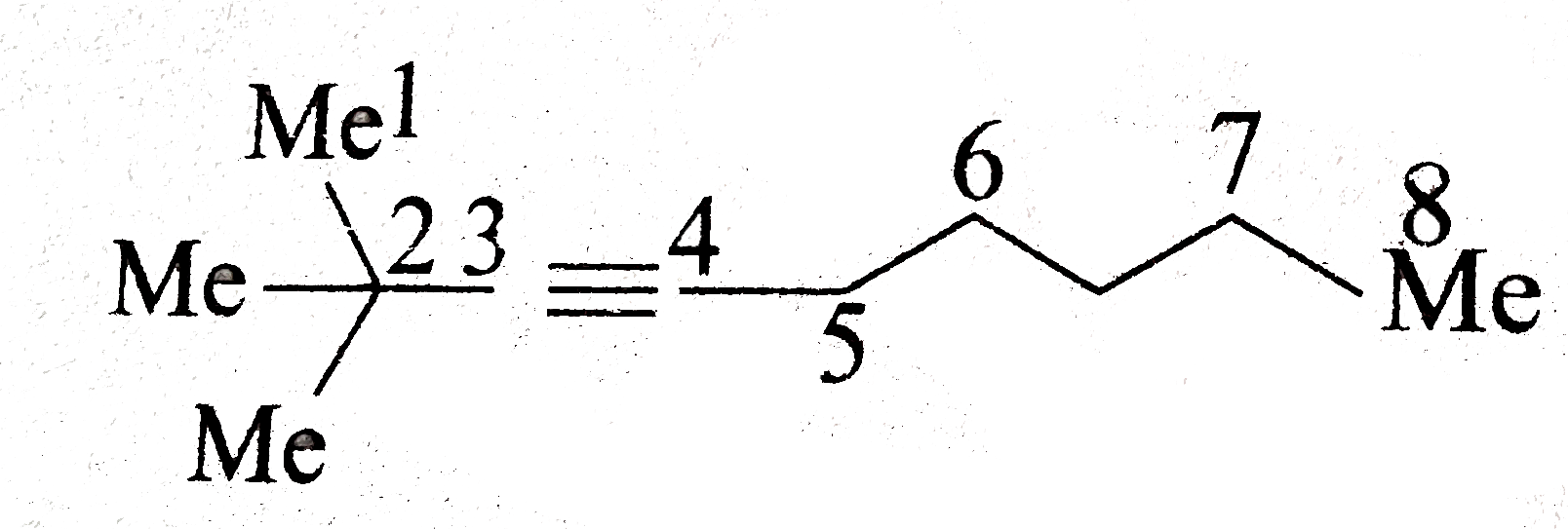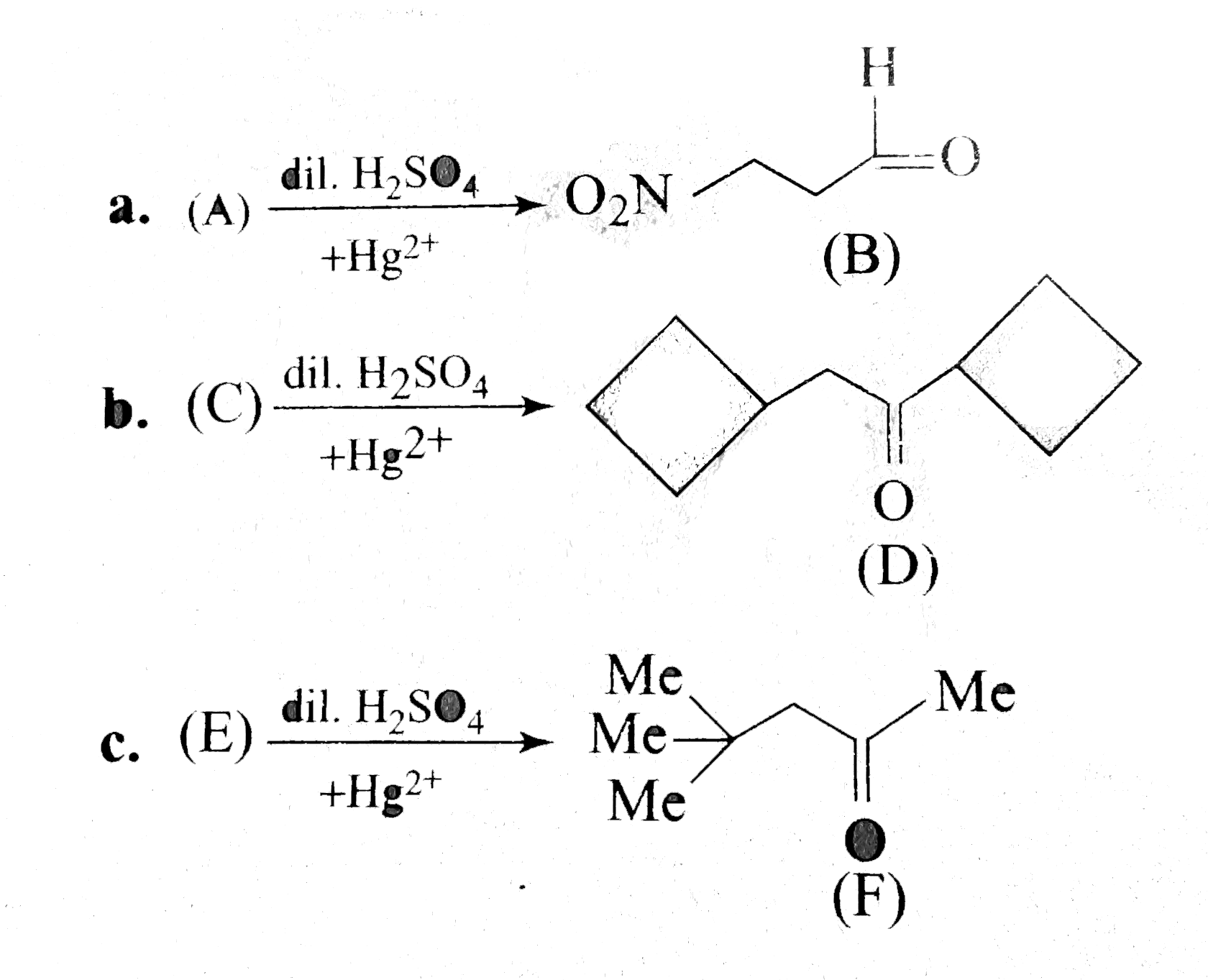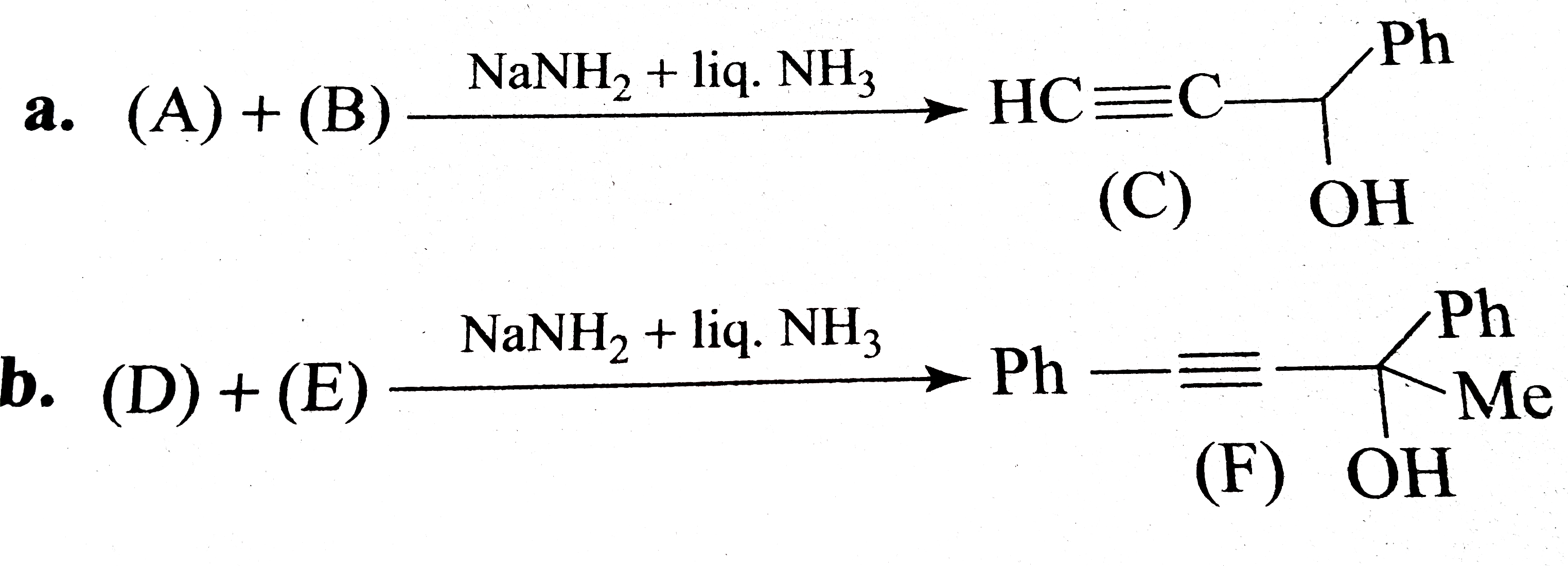Exercises (Subjective Type) from CENGAGE CHEMISTRY Chapter 3 ALKYNES for Class 11
| Class 11 | CHEMISTRY |
| Chapter | ALKYNES |
| CENGAGE CHEMISTRY | Exercises (Subjective Type) |
| Medium | English |
| Academic Year | 2023-2024 |
Question 3
Oleic acid and eladic acid are naturally occuring compounds which are isolated from various oils and fats.
Both diastereomers have one double bond at C−9. Oleic acid is cis and eladic acid is a trans isomer at C−9. Both have molecular formula C17H33COOH. Synthesise both from ethyne. View SolutionQuestion 29
Three compounds A, B, and C are isomers of the formula C5H8. All of them decolourise bromine in CCl4 and give a positive test with Baeyer's reagent. All three compounds dissolve in cone. H2SO4. Compound A gives a white precipitate with ammoniacal silver nitrate, whereas compounds B and C do not react with it. On hydrogenation, in the presence of platinum catalyst, both compounds A and B yield n-pentane, whereas compound C gives a product of formula C5H10. On oxidation with hot acidified KMnO4, B gave acetic acid and CH3CH2COOH. Identify compounds A, B, and C. View SolutionQuestion 30
A dihalogen derivative (A) of a hydrocarbon having two carbon atoms reacts with alcoholic potash and forms another hydrocarbon which gives a red precipitate with ammoniacal cuprous chloride. Compound A gives an aldehyde when treated with aqueous KOH. Write down the name and formula for the organic compound. View SolutionQuestion 31
An unsaturated hydrocarbon (A), C6H10, readily gives (B) on treatment with NaNH2 in liquid NH3. When (B) is allowed to react with 1-chloropropane, a compound (C) is obtained. On partial hydrogenation in the presence of Lindar's catalyst, (C) gives (D), C9H18. On ozonolysis, (D) gives 2, 2-dimethylpropanal and 1-butanal. Identify compounds A, B, C and D. View Solution
All Exercises from CENGAGE CHEMISTRY Class 11 CHEMISTRY ALKYNES
- Exercises (Archives - Analytical and Desriptive Type)
- Exercises (Archives - Fill in the Blanks Type)
- Exercises (Archives - Single Correct Answer Type)
- Exercises (Linked Comprehension Type)
- Exercises (Multiple Correct Answers Type)
- Exercises (Single Correct Answers Type)
- Exercises (Subjective Type)
- Illustrations
- Solved Examples

